#silence of the girls
Text





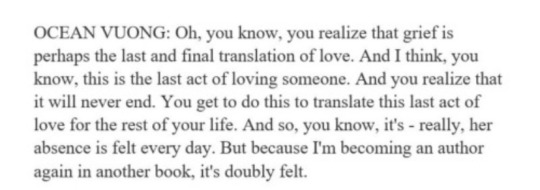

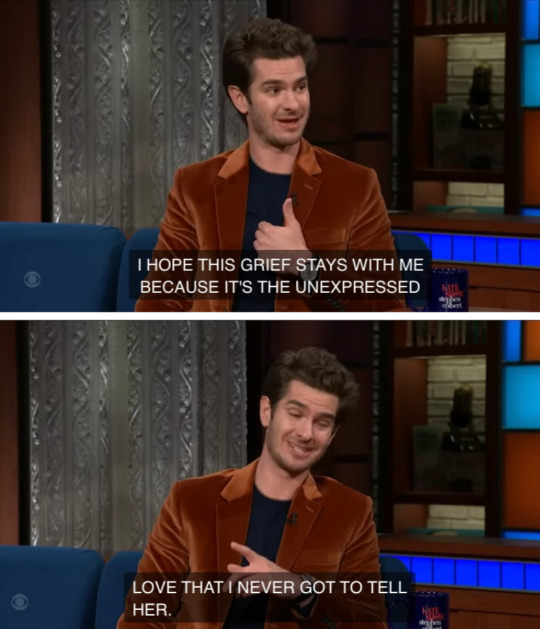

love warrior, glennon doyle melton / fleabag (2016-2019), dir. phoebe waller-bridge / shannon barry / andrew garfield for gq’s men of the year 2022 / jamie anderson / not quite here, hannah lock / ocean voung / holly warburton / andrew garfield, the late late show with james colbert / silence of the girls, pat barker
#web weaving#on grief#love warrior#fleabag#andrew garfield#hannah lock#ocean vuong#holly warburton#silence of the girls#pat barker#words#*#bro.#mine: web weaving
4K notes
·
View notes
Text
HOLY SHIT
HOLY FUCKING SHIT
THEY’VE PUT SONG OF ACHILLES AND SILENCE OF THE GIRLS ON OUR CLASSICAL RECEPTION MODULE SYLLABUS
they’ve put achilles/patroklos reception ON OUR FUCKING HONOURS MODULE WHAT IS MY LIFE
#I AM SO FUCKING EXCITED#i’m an eng lit girl at heart and i’ve wanted to write a comparative analysis essay on the iliad and tsoa for LITERAL YEARS#YEARS i tell you. i was literally talking about it yesterday!!!!#i’m even more excited about this than to pick apart troy 2004#(to be clear: i’m absolutely planning on airing my issues with these books. it’s gonna be so fun)#classical studies#the song of achilles#tsoa#iliad#tagamemnon#silence of the girls
42 notes
·
View notes
Note
Dear Professor, elsewhere you mentioned teaching Miller, Barker and Atwood and I was wondering if you could expand a little on your thoughts on their respective retellings.
QUEERING AND FEMINIZING HOMER: MILLER, BARKER & ATWOOD
For my “Ancient Greece in Modern Historical Fiction” course, I assigned three texts that all dealt with the Homeric poems, in order to examine how ancient myth can be reappropriated for modern audiences. These were Madeline Miller’s The Song of Achilles, Pat Barker’s The Silence of the Girls, and Margaret Atwood’s The Penelopiad.
There are a lot, and I do mean a lot of retellings of the Iliad or Odyssey. Some, maybe most, do so in a straightforward way, treating the myth like an historical novel. They may try to resituate it in another head, like Helen’s, or Hektor’s, or even Paris’s. But they don’t, otherwise, change much. If anything, they attempt to eliminate the fantastical elements (like gods) and play the story as if it really happened.
Yet the nature of myths makes them different from historical fiction. The latter, for me, has a much higher bar for detail accuracy. A myth begins as fiction, so while I do appreciate various renditions attempting historical accuracy, I don’t see it as essential to a good retelling. And the three novels I chose mostly don’t track in that direction; all retain gods and heroes and at least the patina of the magical.
Part of why I’m less concerned with historical accuracy owes to the fact Homer* wasn’t. It’s hard to have accuracy when the original text was all-over-the-place.
Homer composed a stunning piece of war fiction in terms of its impact on a soldier’s psyche. But it’s crap historical fiction. Let’s just put that out there at the start. Imagine putting Al Capone and 1920s gangsters in Elizabethan England, or maybe, Queen Elizabeth in 1920s Southside Chicago. That’s the time and cultural differential. He’s theoretically writing about events at the tail end of the Bronze Age (c. 1200-1100), but the social structure reflects the Early Iron Age as well as the Late Iron Age, with a few vestiges of the Bronze Age. But accuracy isn’t the *point*, for Homer.
Another point of clarification: the Iliad and Odyssey are about fictional people. There was no Agamemnon, Achilles, Priam, Hektor, or Helen. The Trojan War probably did happen—but not for the reasons or in the way the story relates. It’s a bit like Saving Private Ryan: WW II certainly happened, but Private Ryan is Everyman Lost.
Last, the basic plots of the Iliad and the Odyssey were not invented by Homer. These were well-known epic stories. Homer’s brilliance lay in what he did with them. Ergo, it’s more correct to speak of Homer as the composer of the Iliad and Odyssey, rather than the author/writer.
Therefore, what I’m looking for in modern retellings is what a MODERN author does with the same story. How does she or he use these familiar stories to talk about our present age…which is what Homer did himself, after all.
I’ve talked elsewhere about some issues I have with Miller’s Song of Achilles, but as is probably evident from what I said above, I have absolutely zero problems with her queering the tale. What I find more interesting is how her adaptation of Achilles and Patroklos as lovers speaks to our modern world and modern needs.
Any retelling of the Iliad today will run up against the brick wall of ancient values that were very different—and often rather repugnant—to modern readers. To ancient minds, Achilles was a HERO. Admirable. Worthy of emulation. To modern readers he’s, well, kind of a dick. And a butcher.
I’d submit that Homer meant him to be a jerk, too. Part of Homer’s lasting value is his ability to take a cultural hero and finesse him until he’s maybe not so hero-ish, but still comprehensible in his actions to listeners who had, themselves, experienced combat. Ergo, Homer’s Iliad still has something to say today to Vietnam Vets (as per Jonathan Shay’s brilliant Achilles in Vietnam). But most modern readers are not going to like the guy. He has a terrible temper, throws fits when thwarted, and is repeatedly described as “man-killing” like it’s a compliment.
So, as a modern author with a modern audience, how do you redeem him? (If you redeem him; not all authors choose to.)
Miller turned the Iliad into a love story, told from Patroklos's POV, which makes Achilles more likeable. He's painted by Patroklos’s adoration. In both Miller’s retelling and Homer’s original, Patroklos is depicted as empathic in a way modern readers can get behind, so he’s a good choice of point-of-view character. Yet although he comes off as your basic “nice guy,” in the original he is also a skilled warrior who kills a lot of people. Miller ignores this, making him a healer, not a fighter.
Like her casting of Thetis as bitchy, I have some issues with her decision to avoid dealing with the more brutal parts of Homer’s epic by eliding it. She’s buffed off the ugly rather than confronting it. It winds up feeling like a puff piece, alas, which I don't believe was her intention.
Why it does succeed owes not to the fact it’s a love story, but a queer love story. In antiquity, Achilles was a prince (as was Patroklos): the elite of the elite, the ruling class and conquering heroes. They were, in no way, an oppressed minority. A “subaltern” group.
Yet today, queer people are a subaltern population, although people in the queer community enjoy differing degrees of social acceptance. A black or brown trans woman experiences a great deal more oppression than a white gay guy. Yet public acceptance of queerness in any form is relatively recent, as in, something I’ve seen occur in my lifetime. And of course, now it’s being pushed back against.
So to have heroes who did occupy the ruling class and didn’t have to apologize for who they loved is important. If Achilles is a dick, well, he’s a gay dick (pun intended), and pretty, so we’ll slip him a pass.
Is that wrong? Homer doesn’t have a copyright on Achilles. Or Patroklos. Just as he used Achilles and Hektor and Priam to his own ends, so does Miller. Yet I am bothered by her ducking of the fundamental violence of the Iliad. Homer doesn’t, and it makes his the superior story. (Although topping Homer is rather a high bar.) Grief (and rage) make Achilles into a monster. Empathy redeems him…but it’s not empathy for Patroklos. In fact, his inability to empathize with Patroklos’s own grief gets his friend killed. Homer doesn’t sugar-coat that.
No, it’s empathy for the enemy—for Priam, when Priam evokes the grief Achilles’s own father will feel—that finally gets through to him. It re-humanizes him. He and Priam cry together.
See what Homer did there? That’s why the poem is still read c.2700 years after it was composed. On certain levels, it’s timeless. By contrast, Miller’s rendering is time/situation-dependent. It succeeds now. It wouldn’t have succeeded 50 years ago, if it had even got published, and I’m not sure it’ll be as relevant 50 years in the future. That’s not a condemnation. Sometimes books become important when they’re needed.
Yet, as I have issues with her ducking the story’s inherent violence, I also had issues with her handling of Thetis as one of only two prominent women in the novel. Again, there’s no copyright on Thetis, but in Greek myth, she’s not a cold bitch—in fact, she’s rather the opposite. So, while I think Miller’s queering of the Iliad had positive current social coin, her treatment of Thetis played into negative tropes about women (and mothers) that troubled me.
These are things I invite my students to wrestle with, when we talk about The Song of Achilles.
Btw, I sometimes see Miller grouped with Barker and Haynes and Atwood as “feminist” retellings of the Iliad. In no way is her book a feminist retelling. A queer retelling, but not a feminist one.
Let’s turn then to Barker. The very title of Barker’s book gives us a hint of what she wants to accomplish. The Silence of the Girls recasts the myth as the story of Briseis, Achilles’s war prize. Barker’s is one in a line of attempts to present the Iliad from a woman’s point of view, which goes back at least to Marion Zimmer Bradley’s 1987 Firebrand. Just as June Rachuy Brindel told Ariadne’s story (and Phaedra’s too) from a feminist perspective 40 years before Jennifer Saint (and was nominated for a Pulitzer). Another, more recent approach to this was Natalie Haynes’s A Thousand Ships, published just a year after Barker.
[A point: two books published a year apart do not owe to each other. It takes years to write, then publish a novel. But they may reflect current publishing perceptions of market interest.]
Barker makes a concerted effort to take a feminist look at the myth by centering Briseis as the narrator…but only for the first part. By part two, Achilles elbows his way in. Suddenly, it’s no longer Briseis’s story once she’s carted off to Agamemnon’s tent. It seems that Barker just couldn’t unhook entirely from centering Achilles, even if he’s more anti-hero.
We can consider this several ways. It’s possible that she didn’t want Achilles to be as simplistic as Briseis saw him, and therefore needed to get out of Briseis’s head in order to suggest more nuance. It’s also possible that she really does mean her title, The Silence of the Girls, and so silences the girl narrator when handed off to Agamemnon.
I have problems with both readings. First, the need to cast Achilles as more complex than Briseis wants to read him moves the needle away from the female/feminist perspective. Why should it be necessary to give Achilles depth if it’s Briseis’s story we’re telling? Unless she eventually comes to see depth in him…in which case, show us how she comes to that conclusion.
And if she really wanted to “silence” the girl when she became a slave, silence her THEN, not just when she moves residence. She’s no more a slave under Agamemnon than under Achilles. She might lack Patroklos’s support and semi-understanding, but her basic situation has not changed enough to justify a significant change in narrator.
To me, it just seems that Achilles sucked up all the air in the room, as he’s wont to do. He took over her story because Barker let him. It’s still a male-centric view.
This may have happened because Barker, like Miller, didn’t know enough history of the period to thoroughly reimagine the story she’s telling. In this respect, a little more historical accuracy—if not necessary—may have been helpful. How? By recentering the story not only on the female voice(s), but also on non-Mycenaean/Greek voices. Her opening was incredibly interesting, and could have had much more done with it. Marauding Greeks raze her town and take her captive. She comes from a satellite kingdom of the rich and powerful city of Wilusa (Troy), part of the Arzawa confederacy, itself a sometime-tribute group of the even more powerful Hittite Empire. The Mycenaeans are essentially pirates, hated by Hitties (and their allies?). It might have given Barker a two-pronged way to anchor her narrative more solidly: non-male AND non-Greek.
As noted, attempts at historical situating isn’t required. But Barker’s take ended up bogged down by the original Greek-centric view. She wanted to un-silence the girls, but unfortunately, by my reading, she only continued Achilles’s dominance.
So, I see both Miller’s and Barker’s attempts as not quite succeeding—which is interesting in itself. The books are hardly failures, or they wouldn’t have sold so many copies. And they do, in their own ways, take on Homer to resituate it for our era. But neither can quite get away from the historical value systems that make the Iliad problematic to modern readers.
Then we have Margaret Atwood, who takes us to school.
Folks, The Penelopiad is how you give voice to subaltern populations. For such a short book, it has wonderful layers.
First, this is not set in antiquity. Penelope tells her story from Hades, in the “now,” because she wants to correct Homer’s presentation of her (even though Homer’s presentation is overall rather favorable). The tone is modern and discursive. Some find it annoying, but she chooses it for a reason. While the book is not a comedy (unless black), it’s full of intentional, sarcastic humor.
Thousands of years have passed since the events of the Iliad and Odyssey. Penelope remains in Hades, not choosing to be reborn, unlike most of her contemporaries, including her husband…a nice nod to Plato’s Myth of Er where Odysseus is one of several souls who choose rebirth. I don’t know if Atwood is familiar with the story, but it’s Atwood, so it wouldn’t surprise me if she is. It’s an “Easter Egg” the average reader won’t get. Doesn’t matter. Atwood litters her novel with allusions to Greek myth, drama, and philosophy, as well as modern anthropology and Classics. None of it is necessary to follow her tale, but the more you know, the more you’re going to get from it. And the harder you’ll laugh (she spoofs Robert Graves’ White Goddess).
Most of the narrative is Penelope’s metafiction first-person account, but her chapters are broken up by a “chorus” of Penelope's twelve maids, actual figures from the Odyssey, mostly unnamed. Atwood uses them exactly as a Greek chorus in a traditional tragedy (which is what she’s writing). In Homer, the handmaids were traitorous little sluts, as ancient Greek men tended to see slaves, especially slave women. Atwood does something brilliant with them.
The Penelopiad lets women take over the narrative in a way Barker attempted but didn’t quite manage. If the men, Odysseus and Telemechus, are present, Atwood never lets them have a POV. Only Penelope or her maids narrate, and she sets those in tension. Like Briseis, Penelope is a member of the elite: a princess, then queen, however she presents herself in contrast to Helen. She’s a “poor little rich girl.” The twelve maids are manifestly not.
As the story unfolds, Atwood cleverly reminds us of something deeply embedded in Homer: these characters LIE. Odysseus is a magnificent liar, and Penelope lets us know it. “Bent-minded Odysseus” is the typical way he’s described by Homer, and it’s meant as a compliment. Even today, in Greece, being “clever” is better than being “smart.” Homer’s “bent-minded Penelope” is his match. He draws a sympathetic picture of her as Odysseus’s true partner, even if Odysseus entertains dalliances on the side. Of course, in that world, it was expected. Penelope is loyal, waiting at home…not unlike Penelope waiting in Hades here, never venturing out into new lives.
But we must remember: As Odysseus lies about his exploits and life, Penelope lies, too.
As we begin the book, the temptation for the reader—as Atwood intends—is to take Penelope’s account at face value. We may think we’re reading a novel that upends the narrative, centering female voices at last! But as the book continues, the chorus of maids presents us with a different tale, a different view. Then we reach the end and realize what Atwood has so cleverly done.
She truly decentered the narrative.
She’s not just telling Penelope’s story. She’s also telling what happened to the slave women, the twelve maids, who were hanged by Odysseus and Telemachus—in the original epic because they betrayed their mistress/Ithaca by consorting with the suitors. Here, Penelope, who’s just trying to survive, asks them to consort with the suitors to gain intelligence, and some are raped as a result. In the end, they’re executed along with their “lovers.” And Penelope didn’t step in to save them.
They’re expendable.
This is not just a Greek tragedy, but a horror story. Atwood reminds us that although Penelope may be less powerful than her husband, the King of Ithica, she is NOT truly disempowered. She is only half-subaltern. The maids, who are both women and slaves, are the truly disenfranchised. All they have in the world are their looks, and the protection of their mistress…which she doesn’t give.
So, they die.
Most people reading the Odyssey never think about the hanged maids—whether it was a just punishment. It happens in the background; they’re traitors like the suitors. But after reading Atwood, you’ll never read that poem again and overlook them.
Atwood’s novel is not romantic, not poetic, not inclined to have readers read and re-read it to get lost in the romance all over again (as with Miller’s). It’s deeply disturbing. And it’s meant to be.
Of these three novels, this is the one that will still be read, and resonate, fifty years down the road. This is the retelling of Homer that actually manages to unseat the accepted narrative and makes us re-examine the story from the real flip-side.
This one actually “unsilences” the (twelve) girls.
-------------------------
*I’m not going to touch the question of whether there was a “Homer,” and if so, was it one or two people, a he or a she, etc. There is a veritable tsunami of writing about who “Homer” may have been and the composition of these poems. Just be aware.
#Madeline Miller#Song of Achilles#Pat Barker#Silence of the Girls#Margaret Atwood#Penelopiad#modern takes on Homer#Homeric myth#Classics#Briseis#Achilles#Patroclus#Patroklos#Achilles in Vietnam#Ariadne#Penelope#Odysseus#subaltern voices#reception studies#reception of Homer#Queering Homer#Feminizing Homer#tagamemnon
198 notes
·
View notes
Text
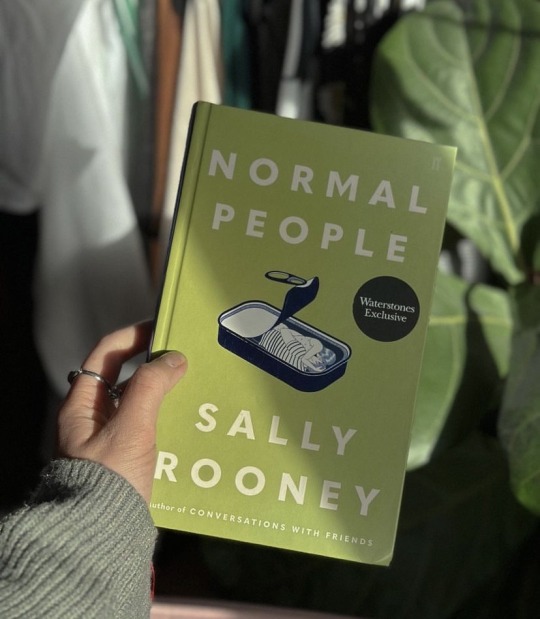

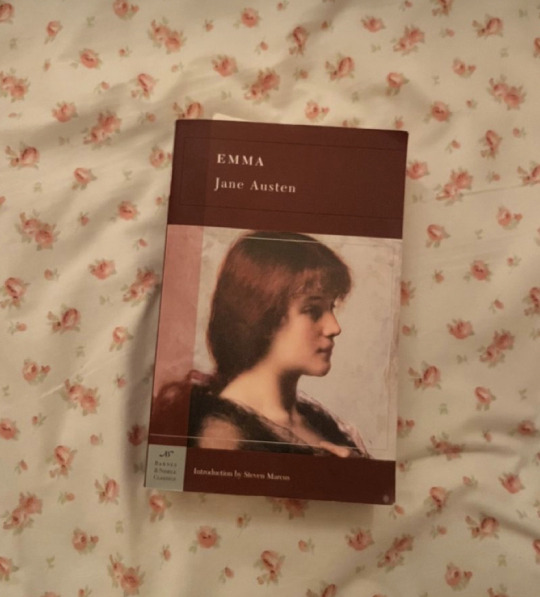

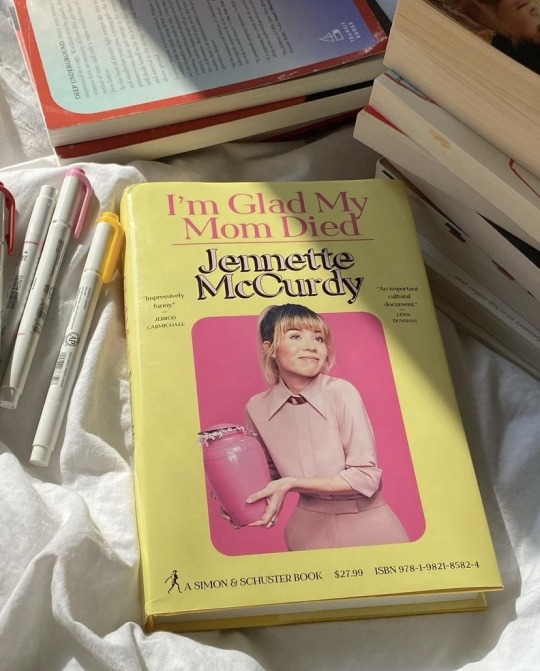



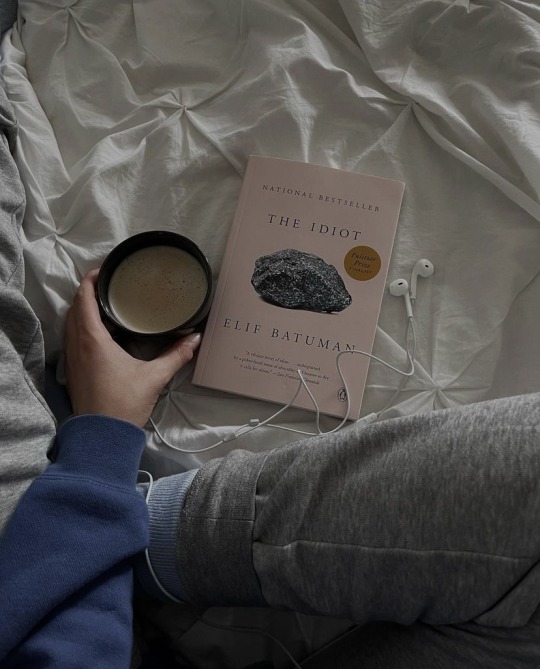
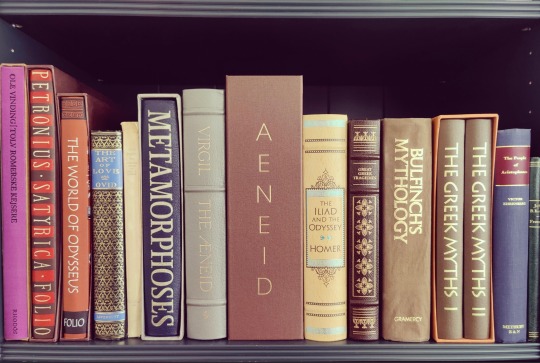
#some reads this year#reading#booklr#book#books#book tok#classic academia#dark academia#academic#cottage academia#dark acadamia aesthetic#secret history#wuthering waves#wuthering heights#normal people#silence of the girls#virgil's aeneid#aeneid#myorar#the idiot#elif batuman#i’m glad my mom died#my brilliant friend#jeanette mccurdy#donna tartt#Emma#jane austen
24 notes
·
View notes
Text
˗ˏˋ ★ ˎˊ˗ Book Log #1 ˗ˏˋ ★ ˎˊ˗
˗ˏˋ ★ ˎˊ˗
Title: The Silence of the Girls
Author: Pat Barker
Pages: 293
Genre: Greek Mythology / Retelling
Time Spent Reading: Jan 7 - Jan 29
˗ˏˋ ★ ˎˊ˗
Rating: 4.5/5
Medium: Owned Copy (christmas gift thx mom)
Review: Super dark retelling of the Iliad from Briseis point of view, shows the horrors of war for women. I really liked this characterization of Briseis. She was so strong in the face of everything. This book has a lot of triggers, def check them out if you read this.

#pigeons book club#book log#reading log#silence of the girls#greek myth retellings#trojan war#briseis#achilles#patroclus#greek mythology#how many books can i read this year#probably not very many#pigeon's book log#pigeon's book club
6 notes
·
View notes
Note
Hey! I'm back! :) Since I'm still trying to learn of the culture (rather than listen to Americanized version @.@), I was actually curious to hear your thoughts on a retelling. If you don't mind me asking, what is your take on Pat Barker's Silence of the Girls and Women of Troy? I have my own problems with it (such as the language used for example), but I was just curious to hear your thoughts.
Unfortunately, I can't answer that fully cause I haven't read the book or other books in the Women of Troy series. I saw the author was from the UK and teaches history, which might sound fine but usually, these are the types of authors who fail to capture the gravity and nuance of the situation. That's just my speculation, though. As I said, I haven't read the books and I sincerely hope the books are good. It's just hard to get my hopes high given the record.
I did a brief Goodreads search and I stumbled upon parts of the reviews:
I specifically worried about this lack of nuance:

And then, half of the book becomes about Achilles..??


And the language problem you mentioned:

There were also good things in the books, from what I saw, like some scenes where the emotions hit right, and some good quotes. Overall it looks like an okay-ish book but I'd say that to me it feels a lot like the Americanized versions.
5 notes
·
View notes
Text


Getting cosy with a book
6 notes
·
View notes
Text
I’m reading silence of the girls at the moment, and as fucked up as it is, the way every character speaks so incredibly British throws me off. I have to put down the book because of how dark it gets, but as soon as I read a character saying “cheers mate” the entire tone is gone
6 notes
·
View notes
Text
2022 Books Review
5 stars
FNAF Ultimate Guide (Cawthon, 2021): A great summary of everything in the sprawling FNAF universe, even has a section devoted to popular fan theories.
A Natural History of Dragons (Brennan, 2013): a fictional biography about a dragon researcher. An interesting character and interesting worldbuilding.
4 stars
The Silence of the Girls (Barker, 2018): an emotionally difficult look at the Trojan War from the perspective of Briseis and other women captured as war prizes by the Greek army. It’s strongest in the first half but the second half switches to other perspectives and feels more like every other Illiad retelling. Could have done without the modern lingo and Achilles' mommy kink.
Nightmares and Dreamscapes (King, 2013): A collection of interesting and spooky short stories. 'Popsy' was probably my favorite, like Taken but with vampires (which sounds like a fantastic action horror movie).
Breakdown (Kellerman, 2016): typical procedural mystery novel but from the perspective of a clinical psychologist.
Compulsion (Kellerman, 2008): same series as above. It's portrayal of queer characters is a bit of a mixed bag. A trans woman sex worker is portrayed with sympathy even if the language used clearly dates it, but there's also a murderous crossdresser. YMMV
Skin Game (Butcher, 2014): a good heist story, even if I took issue with some of the writing choices.
3 stars
Tulip Fever (Moggach, 1999): The first 1/3 was a frustrating read. A woman is unhappily married, falls into lust with a pretentious womanizing painter, and decide to run away together, uncaring to the harm they cause. They claim to be in love after two meetings even though the only apparent thing they see in the other is hotness. The prose and ending (with consequences) manage to save it for me.
#book review#2022 in review#fnaf ultimate guide#a natural history of dragons#silence of the girls#nightmares and dreamscapes#dresden files#tulip fever
4 notes
·
View notes
Text
reading silence of the girls before watching troy (2004) makes for a very frustrating experience
#oh my god im gonna cry#there are just so many inaccuracies#and stuff thats cut out#and like i get it#the movie is almost 3 hours long#but like they didnt even mention diomedes#or cassandra#no to mention the whole briseis thing just annoyed me#troy (2004)#silence of the girls
2 notes
·
View notes
Text
so last year i read a couple retellings of the iliad from the perspective of the women and they were bad so bad like if the authors just tried to capture that ancient type of lyricism that Madeline Miller was able to mimic maybe they could have saved themselves, but they were lacking in making a point. like okay womens lives were terrible then but what else? is that all we can imagine on their behalf anything beyond what we can already tell from what Greek men say about them? clearly the answer is no. but i was thinking there was this retelling of the iliad i read in middle school and it was in the perspectives of helen and cassandra and it was in my middle school library and i did some searching. did anyone read this? i might reread it
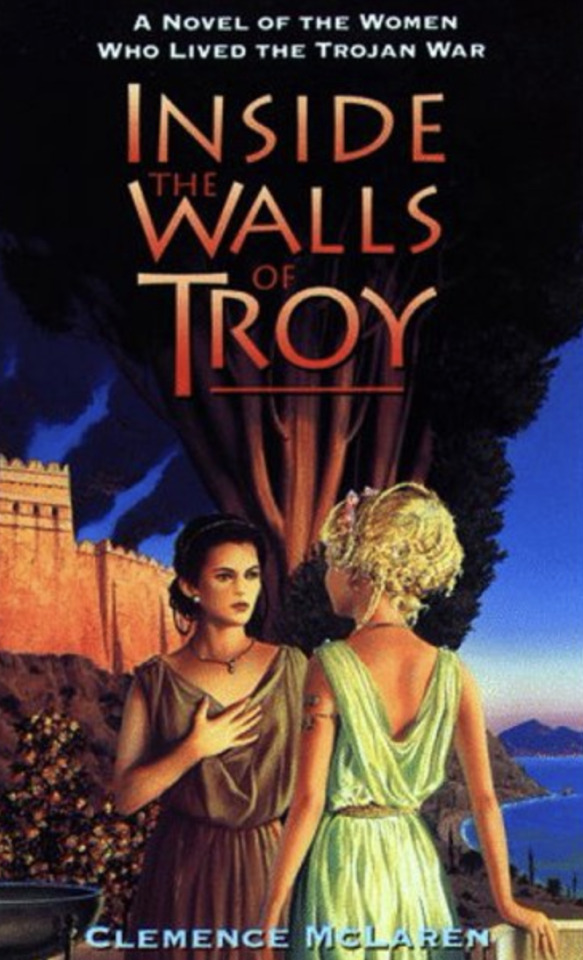
#altho madeline miller wrote a short story that was about a greek myth where a sculptor fashions the most perfect woman#and she comes to life and she wrote in the perspective of the sculptor turned real life woman#but it fell into the same problems as daughters of sparta#and#silence of the girls#like is it the problem is that theyre white women and the misogyny they write about like tries to be too shocking#i cant explain it but theyre just not deep as they tried to be#silence of the girls had a couple of good quotes
1 note
·
View note
Text
I’ve just finished The Song of Achilles by Madeline Miller and I really want to read Silence of The Girls by Pat Barker like rn…but I’m worried that if I read them to close together then I won’t be able to separate the two yk?
#wlw#bisexual#reading#silence of the girls#pat barker#tsoa madeline miller#madeline miller#the song of achilles
4 notes
·
View notes
Text
go to the box, please. GO to the box, please! NOW!
#was quinn hughes silent (he wasn’t) or was he SILENCED???#the way he's so fawking annoying about it i can't stop laughingggajskdkjkjs i just Know he was tweakingggggg more than he let on#i kinda love u bad girl#its important to note that rick had himself a little smile on the bench at his captain having a toddler-esque meltdown over going to thebox#quinn hughes#canucks lb
1K notes
·
View notes
Text

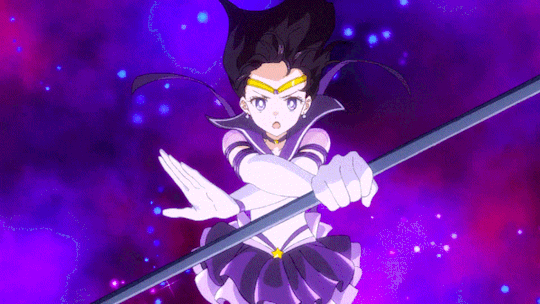
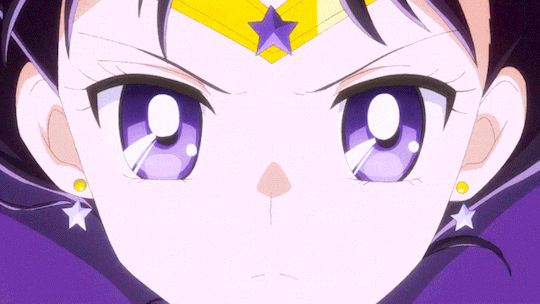

#sailor moon#my gifs#sm#sailor moon cosmos#outer senshi#sailor saturn#hotaru tomoe#silence glaive surprise#magical girl#anime#shoujo#pretty guardian sailor moon#bishoujo senshi sailor moon#smedit#sailormoonedit#anime aesthetic#dailysailormoon#anime gif#anime gifs#animationsource#animationsdaily#animation#animeedit#anime edit#dailyanimatedgifs#dailyanimanga#dailyanimation#dailygifs#dailyanime#anisource
1K notes
·
View notes
Note
The part 2 of damian asking anya 's hand was so cute, thanks for taking my request
If u accept requests could u plz draw Loid secretly spying on Anya on her date with Damian seeing if he is a good bf or not
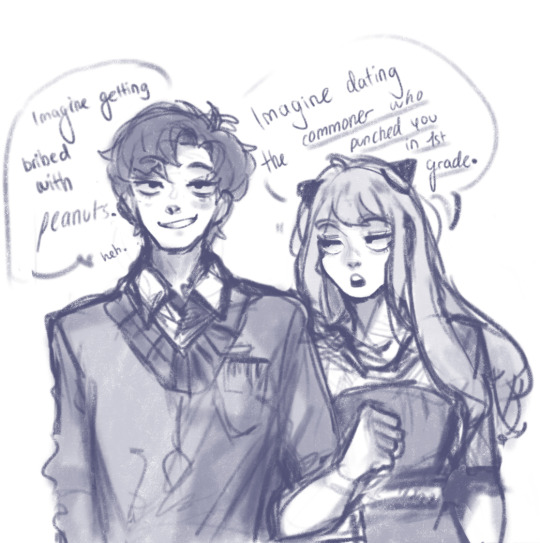
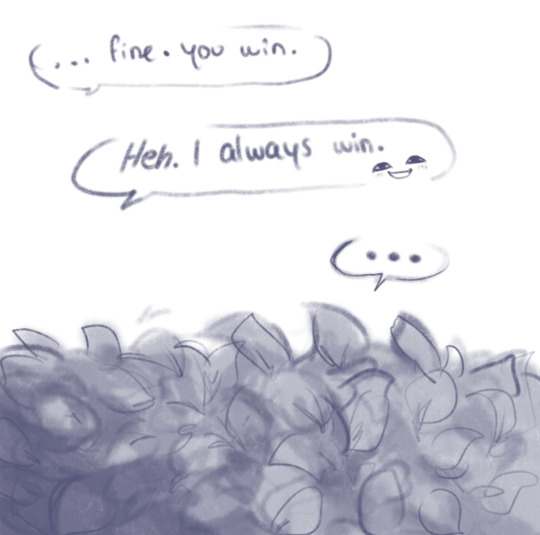

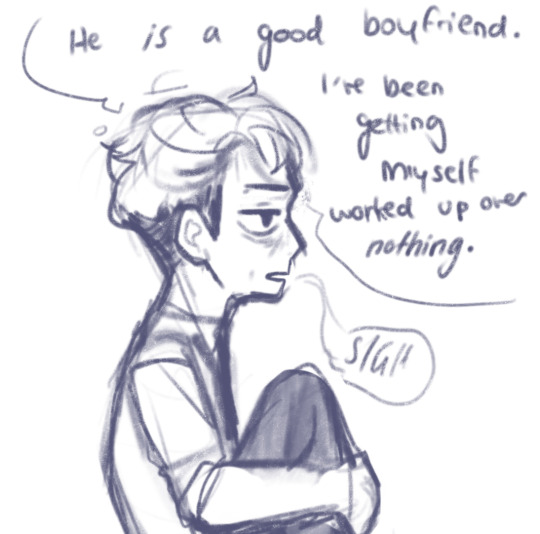


#i swear i wasnt planning on making this emotional#djdhdhd#loidy still sees her as his silly lil peanut girl who hates studying and wants a silenced pistol#over a decade has passed since then??? who cares????#loid forger#anya forger#damian desmond#damianya#spy x family#i've been having a very yucky art block. and im still not quite over it but im tryingggg#please bear with me other 2 requests#my art
4K notes
·
View notes
Text
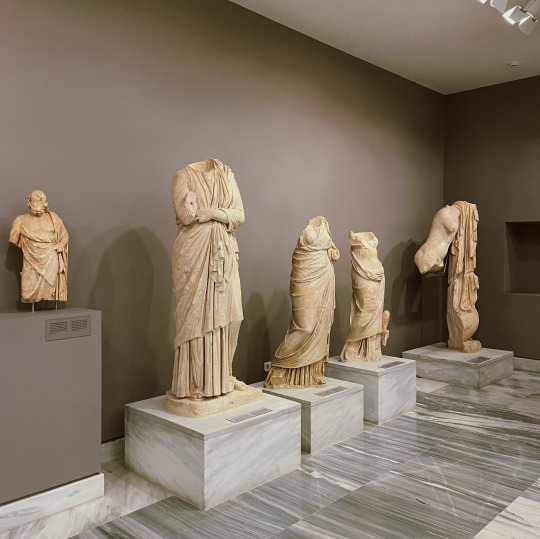
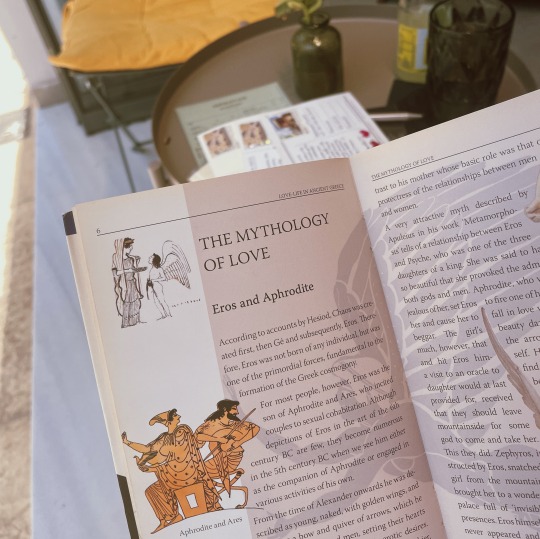


I am once again asking for recommendations of Greek myth inspired books 📖 So far I loved reading the Maidens and The Song of Achilles, but my favourite has to be Pandora by Susan Stokes! Absolutely hated The Silence of Girls by Pat Baker, don’t understand why it exists. (Update: tumblr book recs post here [x])
#TSOG literally silenced the girls - as in switched to a man’s POV halfway through the book 🗿#studyblr#light academia#dark academia#Darkest academia#bookblr#mythology#greek mythology#Books & libraries#literature#bookworm#books and reading#history
2K notes
·
View notes